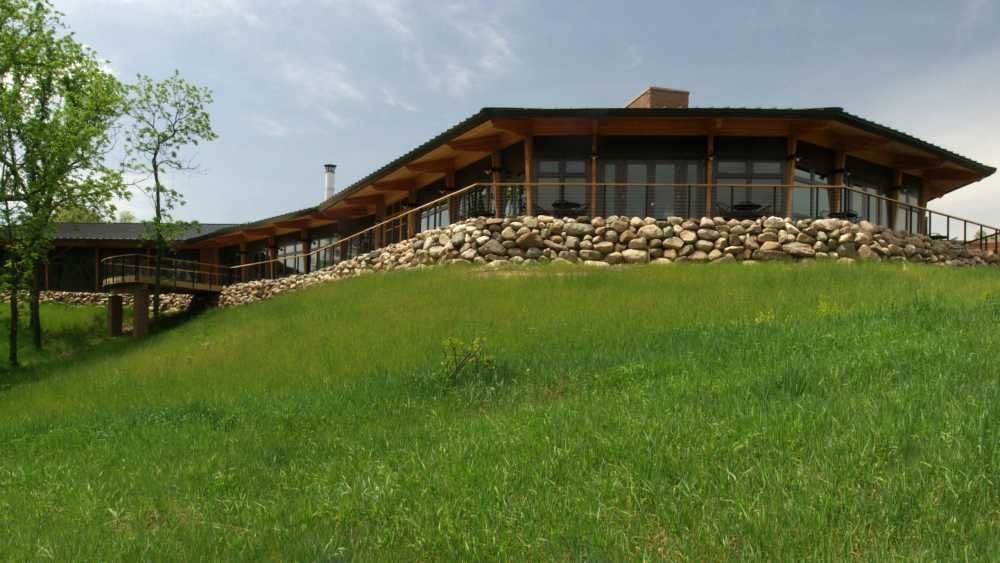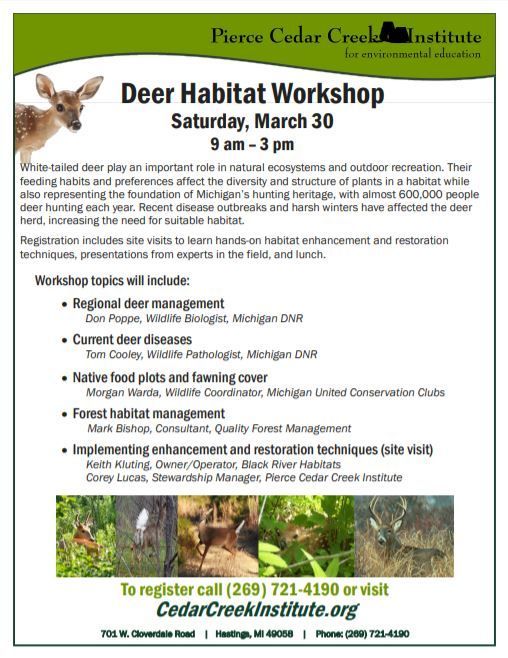March Deer Habitat Workshop
On March 30, the Pierce Cedar Creek Institute
hosted a Deer Habitat Workshop. The Institute is located on 742 acres in Hastings, Michigan and is described as a mix between an environmental education center and a biological research station. On a personal note, this was one of the most gorgeous settings and I look forward to going back to the Institute to explore their hiking opportunities.
This event was geared towards private landowners interested in bettering their habitat for deer – which in turn benefits a variety of species. The Institute is working hard to ensure that hunters are a demographic that is welcomed and supported with their programs. Corey Lucas, Stewardship Manager, reached out to the Wildlife Cooperatives Program about speaking at their workshop to promote the value of landowners and hunters working collaboratively to improve habitat and hunting experience.
The Wildlife Cooperatives Program started as an effort to soundly manage wildlife populations and habitat on private land. Members of wildlife cooperatives work together to gather information through means of trail camera surveys, browse surveys (deer), crow count surveys (pheasants), harvest data collection and identifying habitat projects. Non-hunters that are interested in helping wildlife can participate in observation surveys and habitat projects as well. There is great potential to make wildlife cooperatives a true community-wide effort.
The Institute’s agenda was diverse and provided high-quality information for attendees. Everything from forestry to food plots was covered, including an eye-opening presentation from Mr. Tom Cooley, Wildlife Pathologist) on deer diseases. This included an inside look at the CWD testing process from within the lab.
Everything from forestry to food plots was covered, including an eye-opening presentation from Mr. Tom Cooley, Wildlife Pathologist) on deer diseases. This included an inside look at the CWD testing process from within the lab.
Pierce Cedar Creek also has well-managed grassland acres that attendees were able to see and speak to the consultants that planted the field. Grassland habitat not only plays a significant role in the life cycle of pollinators and birds but is significant for fawn cover. The main theme that came from this event was that quality habitat efforts result in benefits to many species, not just one. This unites people on all fronts of conservation – non-game and game enthusiasts alike.
–
Are you interested in wildlife habitat? Leave us comments about what you are most interested in or would like to learn about during a workshop!

The post March Deer Habitat Workshop appeared first on Michigan United Conservation Clubs.
Recent Posts



